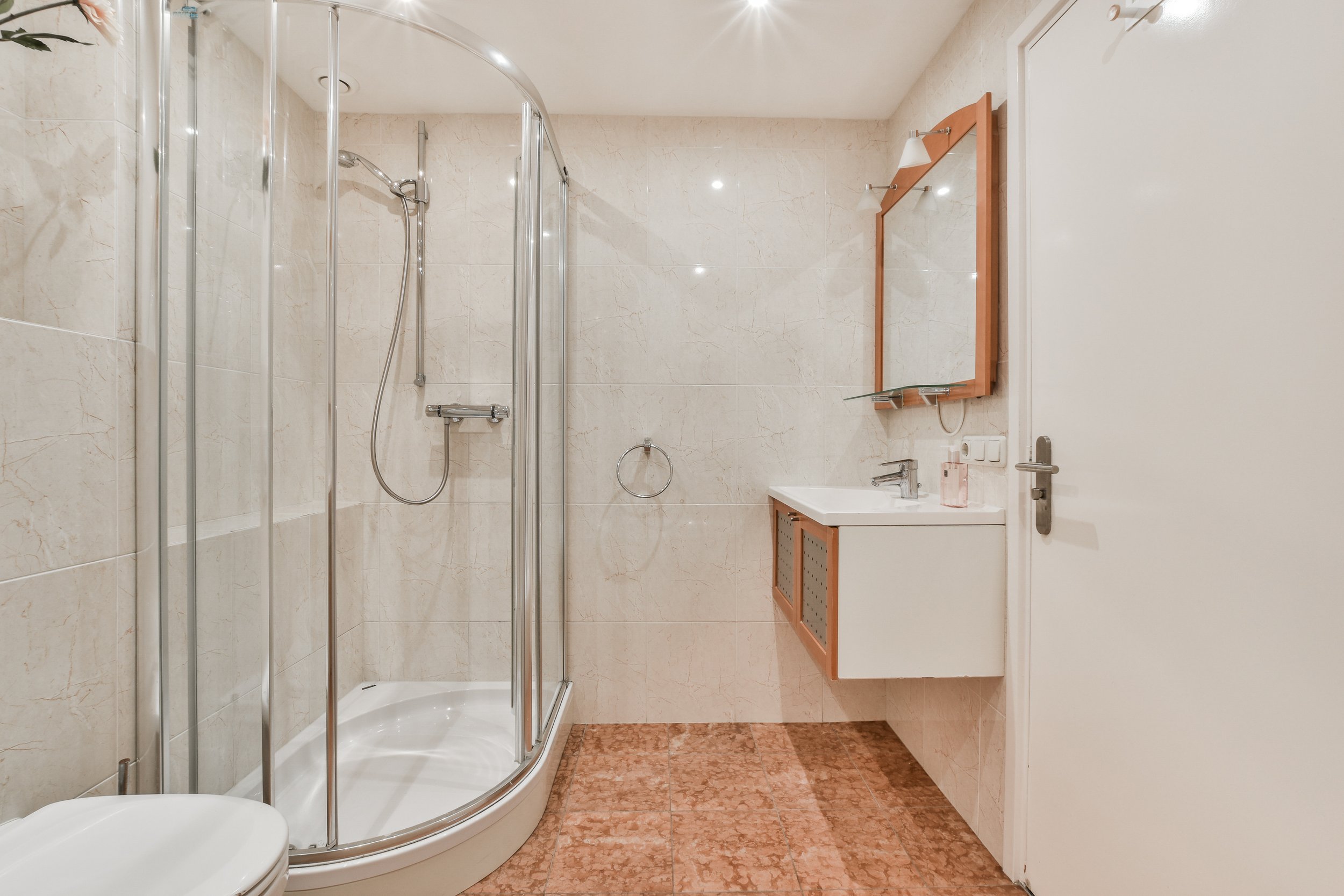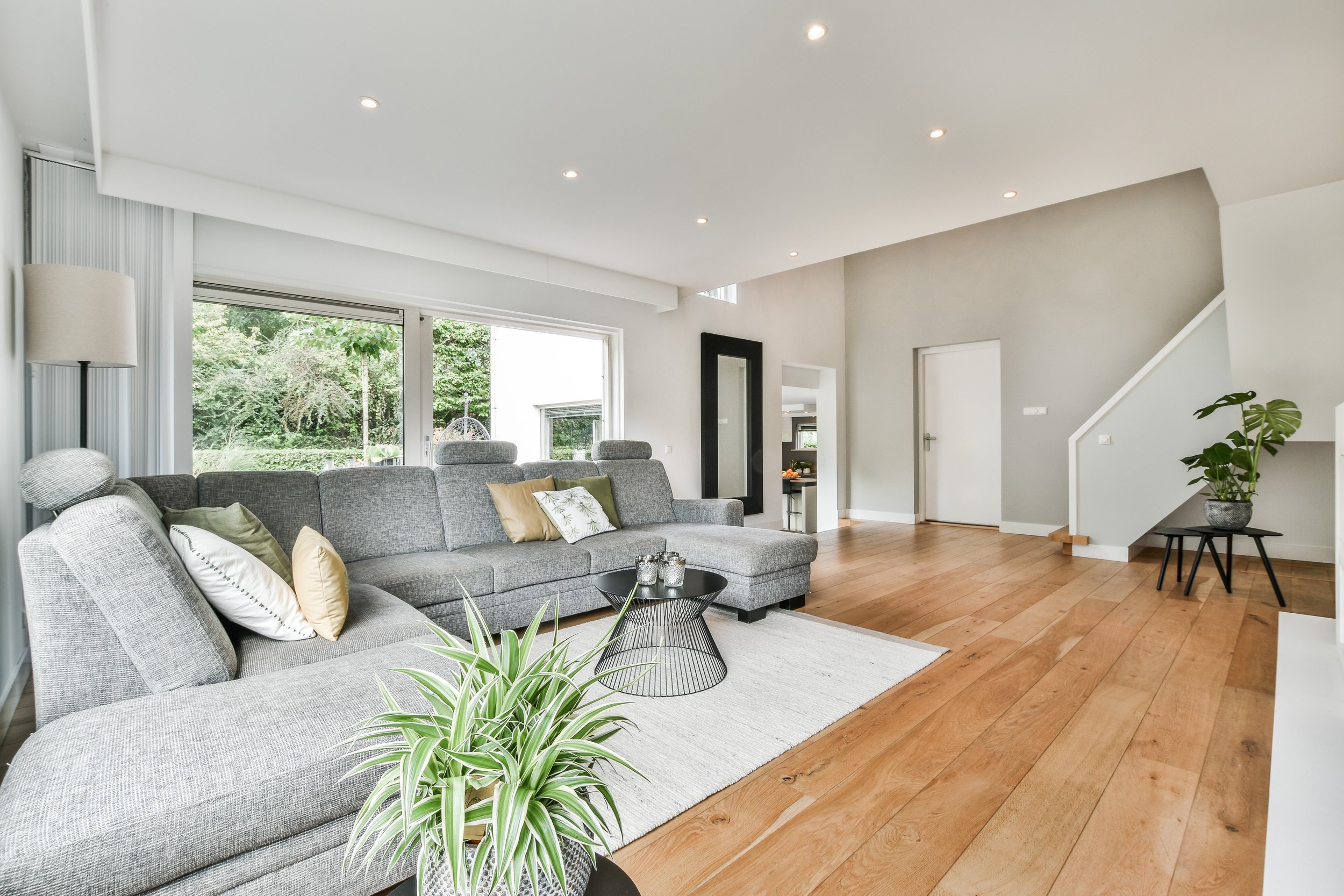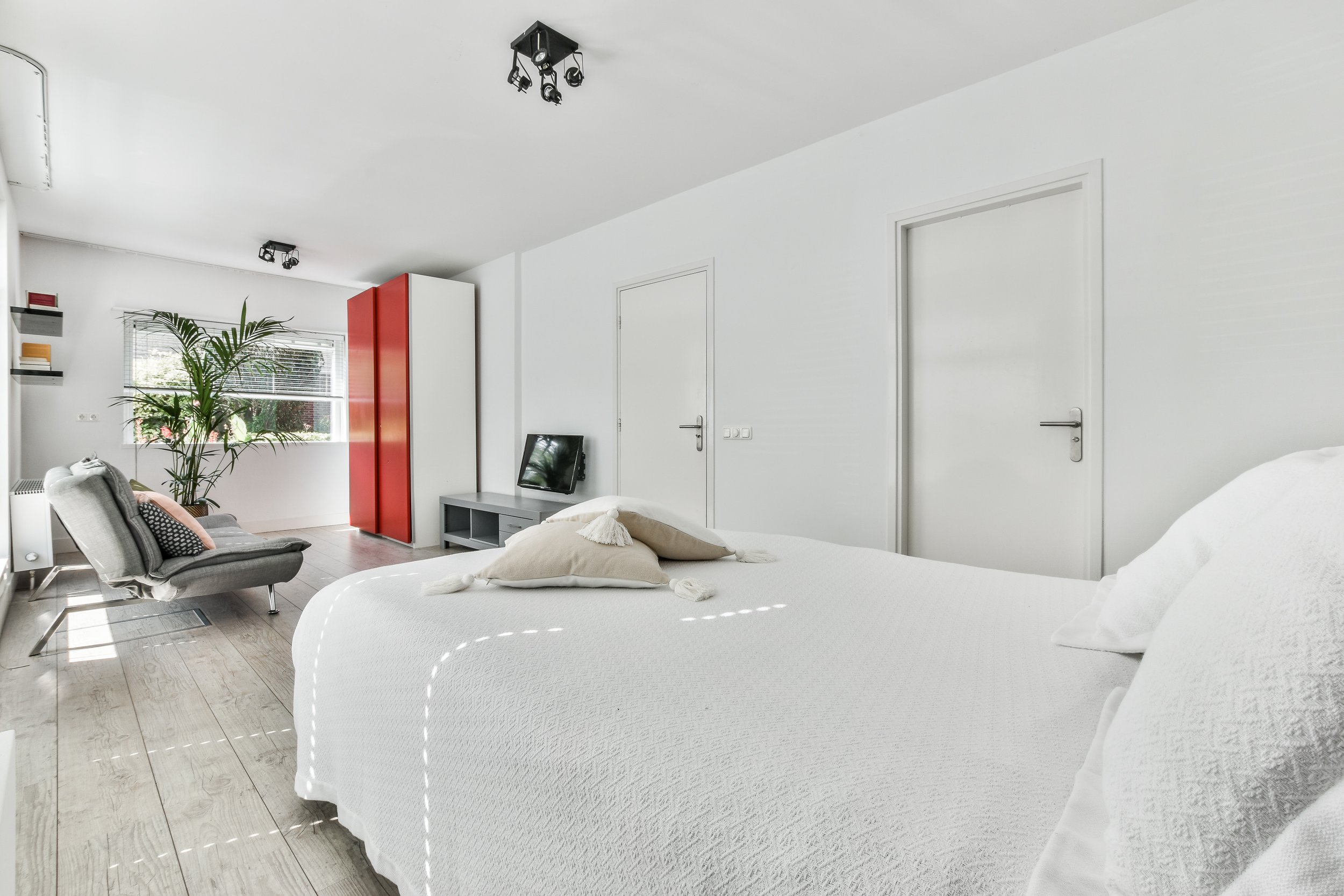
Best Flooring for Basement Finishing in Marietta Homes
Basement finishing in Marietta comes with a short list of non-negotiables: moisture management, comfort underfoot, and durability. Floor choice sits at the center of all three. The right product handles humidity from summer storms, stray seepage from older foundations, and day-to-day wear from kids, pets, and guests. The wrong one buckles, smells, or forces expensive tear-outs within a few seasons.

Heide Contracting builds and renovates basements across Cobb County and greater Atlanta. This guide shares what performs well in Marietta soil and climate, and where each option fits best. Homeowners searching for basement finishing services in Atlanta, GA benefit from local insight before committing to a product line.
What Marietta Basements Ask of a Floor
Local clay holds water. After heavy rain, hydrostatic pressure pushes against foundation walls and slabs. Even with a dry-to-the-touch basement, vapor can transmit through concrete. Summer humidity raises ambient moisture, and winter brings cold floors. A basement floor in Marietta needs moisture tolerance, dimensional stability, and a plan for thermal comfort.
Good preparation matters more than the product label. A moisture test, perimeter drainage check, and a proper vapor strategy form the base. After that, material choice decides maintenance, warmth, and long-term value.
Luxury Vinyl Plank and Tile: The Workhorse
Rigid core LVP/LVT is the most common basement choice in the Atlanta area for a reason. It resists cup and curl, locks tight, and shrugs off minor spills. Homeowners like the wood and stone visuals, and installers know how to float it over clean slabs. In lived spaces like rec rooms and guest suites, it delivers a finished look without delicate care routines.
Not all vinyl is equal. Rigid SPC cores feel stable but can sound hollow without the right underlayment. WPC cores feel warmer underfoot yet can dent under concentrated weight. A 12–20 mil wear layer holds up to dogs and rolling chairs. Click systems with a strong joint profile reduce seam gaps in humid months. A vapor barrier underlayment is wise unless a glued-down system specifically includes it.
Reality check: standing water from a failed water heater will not ruin quality LVP, but water can seep under planks and trap odor. Quick removal and drying fixes the issue. Heavy gym racks can imprint softer WPC; use pads and spread loads.

Engineered Hardwood: Beautiful, With Caveats
Engineered hardwood brings real wood veneer over a stable core. It looks upscale in theater rooms and guest suites. It can handle moderate humidity shifts better than solid wood. However, wood remains sensitive to moisture events and needs a consistently dry basement. If the slab reads low on a calcium chloride or RH test and the space has reliable dehumidification, engineered hardwood can work.
Stick with click or glue-down products rated for below-grade installs. Thicker wear layers allow future refinishing but raise cost. Expect seasonal movement. Avoid in spaces prone to pet puddles, teen hangouts with open drink cans, or any area near a sump pit access.
Ceramic and Porcelain Tile: Tough and Timeless
Tile is stable, water tolerant, and long lasting. It fits kitchens, baths, and entry zones in basements that see mud and moisture. Porcelain rates higher for density and chip resistance. With the right crack isolation membrane and a flat slab, tile performs for decades.
Homeowners need to plan for comfort. Tile is cold on bare feet. Radiant heat mats under tile solve the chill and create a premium feel, especially in a basement bath or bar area. Grout choice matters; stain-resistant grout keeps cleanup simple. Sound can reflect in a full-tile space, so add soft furnishings or acoustic panels to keep echo down.
Stained or Polished Concrete: Industrial Clean
Finishing the existing slab with grind-and-seal, polish, or stain is cost-effective and resilient. It handles minor water incidents and suits craft rooms, home gyms, and modern media spaces. A high-quality sealer adds sheen and stain resistance. In busy homes, reseal every 2 to 5 years based on traffic.
Like tile, concrete runs cool. Area rugs and rubber gym tiles soften specific zones. Slab flatness shows in the final look; patching and grinding take time but pay off. Hairline cracks often remain visible after polish, so homeowners should like the character.
Rubber Flooring for Gyms and Playrooms
Rolled or interlocking rubber handles heavy weights, drops, and high activity. It adds grip and reduces noise, which is valuable for treadmills and free weights in a basement gym. Vulcanized rubber resists crumbling and odor better than budget foam. It can trap moisture underneath if water enters from walls or a slab leak, so leave a small expansion gap and plan for airflow in storage closets.
Cleaning is simple with a neutral cleaner. Avoid harsh solvents and oil-based products that can stain or soften some rubber mixes.
Engineered Laminate: Better Than Before, Still a Middle Option
Modern laminates with water-resistant cores outperform older boards that swelled at the first spill. Some brands carry 24–72 hour water resistance claims. In practice, they do okay in a dry basement with stable humidity and no history of seepage. They sound and feel different than vinyl and can look very convincing in wood visuals.
Edge swelling remains a risk if water sits. If kids use the space for crafts and drinks, or if pets live downstairs, LVP outperforms laminate for cleanup and longevity.
What to Avoid Below Grade
Solid hardwood swells with vapor and often cups. Traditional carpet over thick pad traps moisture and odors, and it can harbor mildew. If a homeowner wants soft flooring, carpet tiles with moisture-resistant backings and a low-profile pad perform better, and single tiles can be replaced after spills.
Subfloor Approaches That Actually Work
A raw slab is not a uniform substrate. Small ridges and dips telegraph through floating floors, stressing joints. Grinding high spots and feathering low areas creates a reliable base. For thermal comfort and vapor management, insulated subfloor panels with an integrated dimple layer create a decoupled, warmer surface. In budget scenarios, a quality vapor barrier plus a high-density underlayment under LVP strikes a balance.
Glue-down systems require the right adhesive rated for moisture levels measured on the slab. Skipping an RH test risks failure. In homes near Sope Creek or low-lying lots in East Cobb, readings often run higher after heavy rain, so timing and dehumidification during install matter.

Matching Floor to Use Case
A movie room in Indian Hills has different needs than a teen hangout in West Cobb or an in-law suite near the Marietta Square. Start with how the space will live.
- Family lounge and guest suite: LVP/LVT with a quality underlayment. Add area rugs for warmth and acoustics.
- Home gym: vulcanized rubber in the lift zone, LVP in the stretch and media area for a clean look.
- Basement bath and bar: porcelain tile with radiant heat in key zones; transitions to LVP in the main room.
- Workshop or art studio: sealed concrete for easy cleanup; add anti-fatigue mats at benches.
- Premium finish spaces: engineered hardwood only with moisture tests passed and stable HVAC and dehumidification.
Moisture Testing and HVAC: The Hidden Heroes
Before picking a box of flooring, measure the slab. Calcium chloride or in-slab RH tests reveal what the eye misses. A reading within manufacturer limits keeps warranties valid and avoids callbacks. Good basements in metro Atlanta run a dedicated dehumidifier set around 45 to https://www.heidecontracting.com/basement-finishing 50 percent relative humidity in summer. Supply and return airflow in finished rooms prevents stale corners that feed mildew, especially behind closed media cabinets and under stairs.
Budget Ranges Seen in Cobb County Projects
Costs vary by product and prep. In recent projects, homeowners typically see these installed ranges per square foot, including standard slab prep:
- LVP/LVT: $6 to $10 for mid to high quality visuals with 12–20 mil wear layers.
- Porcelain tile: $12 to $20 depending on size, membrane, and layouts with patterns or mosaics.
- Engineered hardwood: $10 to $18 with moisture mitigation products as needed.
- Sealed or polished concrete: $4 to $9 based on grind level and sealer system.
- Rubber gym flooring: $6 to $12 depending on thickness and brand.
Older slabs that need crack isolation, self-leveling, or moisture mitigation add to these numbers. Flood history or French drain work shifts budgets more than material choice. An on-site assessment is the only honest way to refine estimates.
Small Decisions That Raise Daily Satisfaction
Transitions between rooms matter more in basements with multiple functions. Low-profile reducers reduce trip hazards. Matching stair treads and nosings give a clean line from main level to lower level. Underlayment choice sets sound quality; a denser pad under LVP tightens the feel and cuts echo. In a theater room, soft wall treatments pair with carpet tiles or thicker underlayment to keep sound where it belongs.
Pets need scratch resistance and easy cleanup. A 20 mil wear layer LVP with embossed-in-register texture hides micro-scratches better than smooth gloss finishes. Felt pads under furniture and rolling casters rated for hard floors protect the surface.
Why Local Installation Experience Pays Off
Marietta and the larger Atlanta area bring similar conditions but different basement histories. Homes off Paper Mill Road may have settled slabs with hairline cracks; 1990s builds near Lassiter often have drier basements but uneven finishing. A crew that has finished basements across Atlanta knows where to look for hidden water paths, how to stage dehumidification, and which products hold up block by block.
Heide Contracting provides basement finishing services in Atlanta, GA with a focus on durable, attractive floors that match real life. The team tests moisture, checks drainage, and helps homeowners compare samples in their actual lighting. That reduces risk and avoids the cycle of buying twice.
Ready to See Options in Your Space?
A 30-minute site visit answers most flooring questions: moisture levels, prep requirements, and product fit for how the basement will live. Heide Contracting serves Marietta, East Cobb, Sandy Springs, Vinings, Smyrna, and nearby neighborhoods. Book a consultation to review samples, confirm moisture readings, and receive a clear proposal for your basement finishing project.
Heide Contracting provides renovation and structural construction services in Atlanta, GA. Our team specializes in load-bearing wall removal, crawlspace conversions, and basement excavations that expand and improve living areas. We handle foundation wall repairs, masonry, porch and deck fixes, and structural upgrades with a focus on safety and design. Whether you want to open your floor plan, repair structural damage, or convert unused space, we deliver reliable solutions with clear planning and skilled work. Heide Contracting
Atlanta,
GA,
USA
Phone: (470) 469-5627 Website:
https://www.heidecontracting.com,
Basement Conversions
Instagram: @heidecontracting
Facebook: Heide Contracting